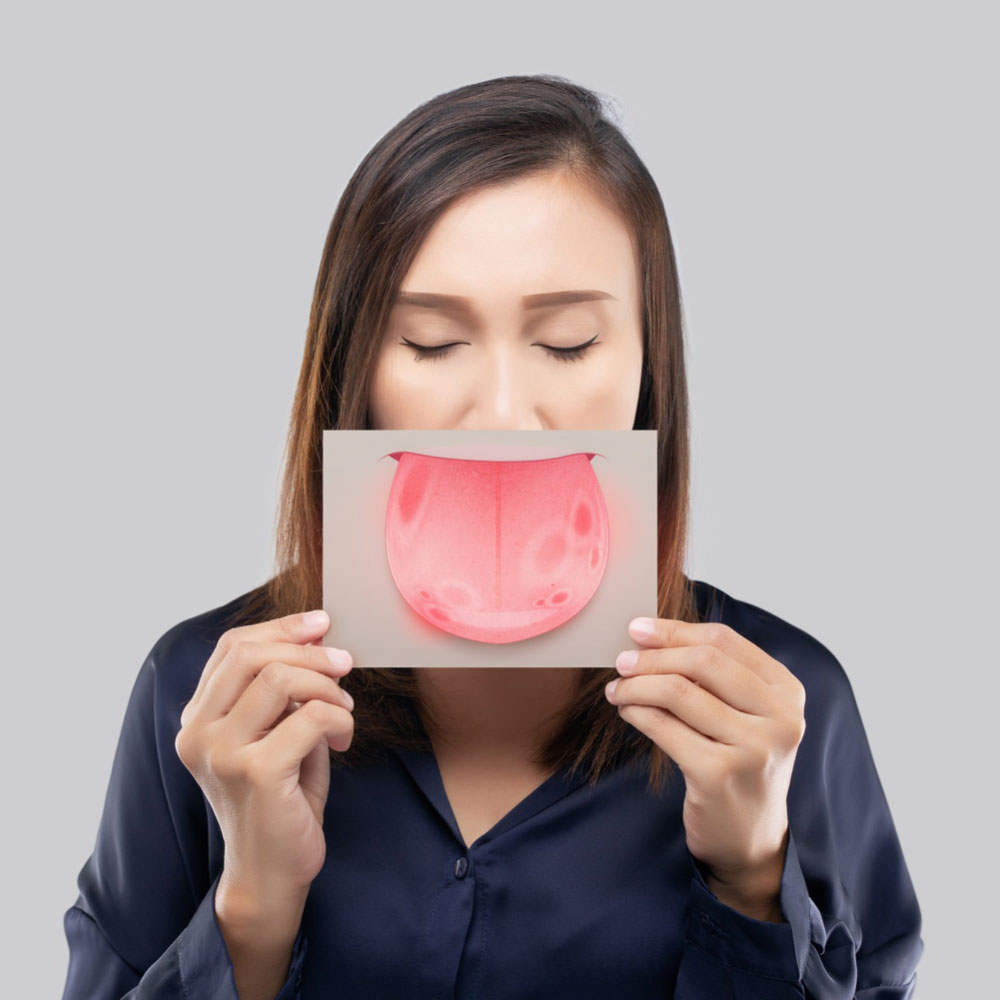
What is Oral Thrush?
Oral thrush, also known as oral candidiasis, is a yeast or fungal infection of the mouth. Oral thrush develops on the mucous membranes of the mouth. It appears as whitish-yellow bumps or creamy lesions and commonly affects the inside of the cheeks and tongue. The organism most commonly responsible for oral thrush is a fungus named Candida albicans.
Oral candidiasis is a common infection and resolves without any complications. However, in people with a weakened immune system, a candida infection can be more severe in its signs and symptoms. Although it can affect anyone, children, older individuals, and people with suppressed immunity are more susceptible.
Symptoms of Oral Thrush
Initially, infection of oral thrush may not produce any signs or symptoms. However, as the infection progress, you may see one or several of the signs and symptoms elaborated below:
- White or yellow creamy patches on the inside of the cheeks, tongue, gums and lips.
- It may give a cotton-like feel to the mouth.
- Sometimes, the infection may also progress to involve the roof of your mouth, tonsils, back of the throat and upper oesophagus (food pipe).
- Slight bleeding may be present if the lesion is scraped.
- Soreness and burning sensation in the mouth.
- Dryness and cracked skin visible at the corners of the mouth.
- Foul taste or total loss of taste.
- Bad breath.
- Difficulty in chewing and swallowing.
- If you are a denture wearer, you may have redness, irritation and pain under the dentures. This is known as denture stomatitis and makes wearing a denture almost impossible.
If you are experiencing any symptoms of oral thrush, please schedule an appointment at our dental clinic to get it treated. Delaying treatment for oral thrush can have detrimental consequences.
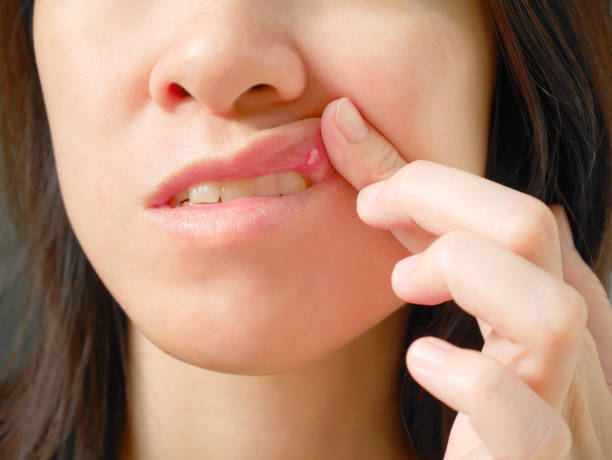
When to seek medical advice for oral thrush?
If you are experiencing any of the symptoms mentioned above, it is recommended that you seek urgent medical help. Delaying treatment for oral thrush can cause it to progress and becomes detrimental. Consult our specialist dentist for complete resolution and treatment of oral thrush today.
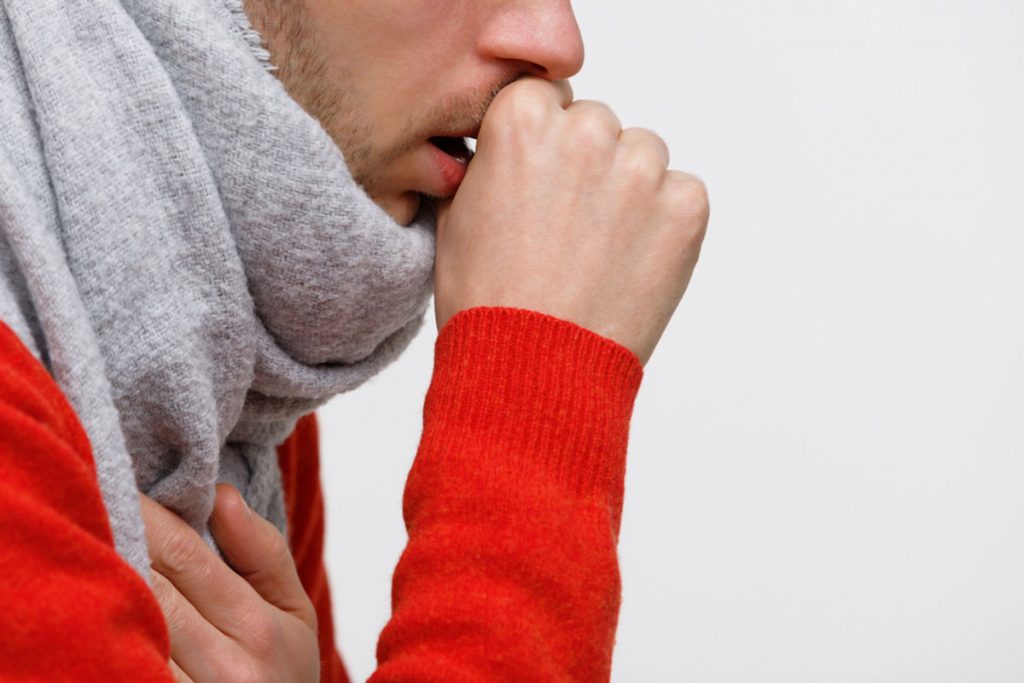
Causes of Oral thrush
Oral thrush, as mentioned earlier, is a fungal or yeast infection of the mouth. It is mainly caused by an overgrowth of the fungus Candida albicans. This fungus is ordinarily present in the mouth, and its growth is kept in check by our immune system.
However, when our immune system is compromised or the balance of microorganisms in the body is disturbed, the growth of this fungus can spiral out of control.
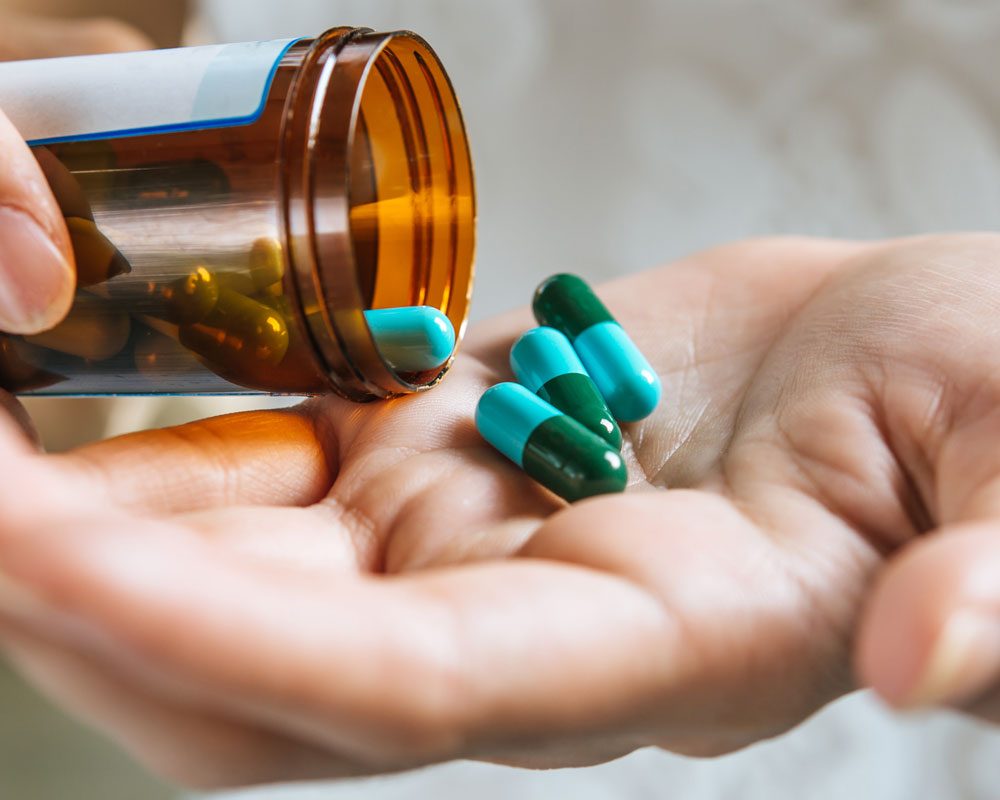
Consumption of certain antibiotics for long reduces the number of beneficial microorganisms in the mouth. These organisms keep a check on the fungus, but due to their absence, the fungus grows uncontrollably and causes oral thrush.
Chemotherapy and radiation treatments for cancer can also kill healthy cells and suppress the immune system. People receiving cancer therapies are prone to fungal infections like oral thrush.

Conditions like HIV-AIDS attack the immune system and weakens its ability to fight against infections. Oral thrush is a commonly occurring opportunistic infection in people with HIV.
Similarly, in diabetic patients with uncontrolled sugar levels, the immune systems weaken and creates a favourable condition for the growth of Candida.
Risk factors for oral thrush
- Poor oral hygiene.
- Wearing unclean, ill-fitted dentures.
- Long term antibiotics treatments.
- Excessive use of antibacterial mouthwashes.
- Long term steroid medications.
- Weakened immune system.
- HIV-AIDS
- Cancer
- Diabetes
- Dry mouth (xerostomia)
- Malnutrition – especially a diet deficient in Vitamin B12 and Folic acid.
- Smoking and tobacco consumption.
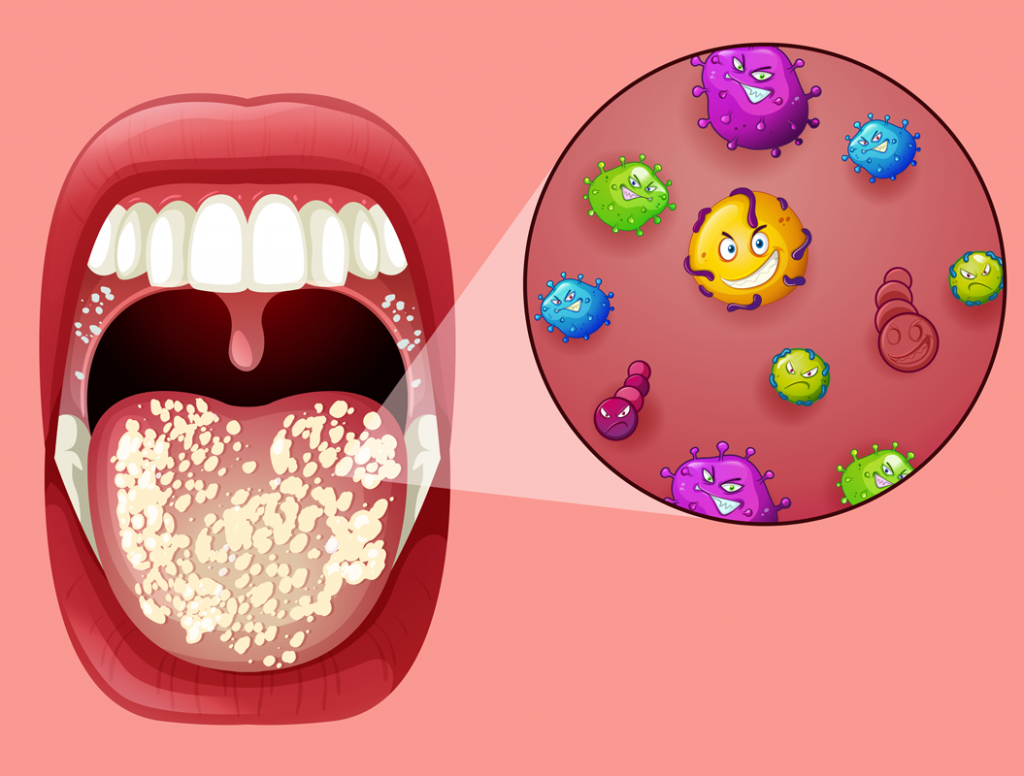
Is Oral Thrush contagious?
Oral candidiasis, commonly known as oral thrush, is generally not considered to be contagious. The fungus Candida albicans is a natural inhabitant of the oral cavity.
However, it is seen that an active infection can be passed while kissing. Other instances where this fungal infection can be passed is between infants and mothers. Infants are more susceptible to oral thrush and may develop this infection or transfer it to the mother while breastfeeding. It is also possible that you may transfer the disease from one body part to the other.
Treatments for Oral Thrush
Once our dentist determines that you indeed suffer from oral thrush, they may prescribe one or more of the following treatments.
- Complete oral prophylaxis will be advised.
- Oral antifungal medications like Fluconazole may be prescribed.
- Nystatin, an antifungal mouthwash, is also commonly prescribed.
- In severe cases when patients do not respond to usually antifungal treatments, a more potent antifungal known as Amphotericin B may have to be started.
Typically, oral thrush usually resolves within a couple of days after the treatment is started. However, in some cases, you may have recurrent infections. In such cases, a complete health evaluation is mandatory to determine if there is an underlying condition contributing to the illness.

Complications of Oral Thrush
Oral thrush rarely leads to any complications in individuals with a healthy immune system. However, in severe cases and especially in people with a weakened immune system, it can progress to severe forms if not treated early. The fungus can enter the bloodstream and spread throughout the body. It can also cause a life-threatening condition known as septic shock.
Therefore, it becomes imperative to seek medical help for oral thrush as soon as you experience any symptoms.
Prevention of Oral thrush
You can prevent oral thrush by following these simple measures
- Ensure that you are taking a balanced and nutritious diet. Having an overall healthy lifestyle is critical in supporting your immune system.
- Practice good oral hygiene. Brush your teeth twice a day, once when you wake up and once before bed. In addition, use floss to get rid of any deposits between your teeth once every day.
- Schedule regular visits to our dental clinic to ensure good oral health. This will help in diagnosing any oral diseases at the earliest.
- If you suffer from dry mouth, consult our dentist for its treatment.
- If you wear dentures, remove them before you go to bed and clean them with a toothbrush daily. In addition, ensure they fit you well, and if they don’t, please schedule an appointment to get a pair that fits well.
- If you have diabetes, ensure your sugar levels are under control by following your doctor’s instructions and taking medications as advised.
If you are suffering from oral thrush, please schedule an appointment at our dental clinic today and consult our specialist dentist. If you have any questions or would like to know more about our emergency dental services, don’+-*t hesitate to get in touch with us, and our team of outstanding dental professionals will assist you.
